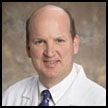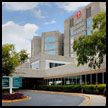|
New pilot program enhances access to physicians and other providers
On July 25, The Emory Clinic and the division of general medicine, in partnership with Aetna, launched Emory Patient-Centered Primary Care (PCPC), a pilot program to test a new "medical home" model of care. Defined by the American College of Physicians as team-based care led by a personal physician who provides continuous and coordinated care throughout a patient's lifetime, the medical home model has been associated with decreased hospital admissions, lower prescription costs, and most important, happier, healthier patients.
The new practice is open to Emory employees and their adult family members who are covered under Emory's insurance program administered by Aetna. Certain patients with Medicare Advantage HMO/PPO membership whose plan has agreed to participate in the pilot program also can participate in Emory PCPC.
| |
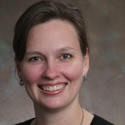 |
| |
Jennifer Zreloff |
| |
|
| |
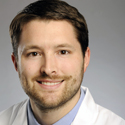 |
| |
Jason Higdon |
Board-certified internists Jennifer Zreloff, who has been with Emory since 2001, and Jason Higdon, who joined the clinic in 2010, are serving as the physicians in the new program. As it grows, more insurance plans and physicians will be added.
Zreloff, a long-time advocate of this type of care, says the model allows patients greater access to their physicians and to others on the care team as well.
"The main distinction is that it provides longitudinal care versus episodic care," says Zreloff. "We have always done our best to meet our patients' needs at the time of their visit, but we didn't have the systems in place to really track their needs when they were not in the office. With this approach, depending on a person's health issues, we may have a pre-visit interaction, an office visit, and a post-visit interaction. We also have a care coordinator who will be able to identify and remind patients who are due for a checkup or who have a need related to their chronic disease, such as a glucose screening or blood pressure check."
In addition to seeing patients in newly renovated space on the second floor of the 1525 Clifton Road Building, Higdon and Zreloff, along with other team members, can correspond with patients by email through a secure online patient portal computer system. Patients can access the patient portal to receive test results, ask their care team questions, and receive answers in a timely fashion. Patients also can have clinical questions answered by booking a telephone appointment.
"We now have a way to provide care without the patient physically being in the office," says Zreloff. "We can offer a virtual visit to help meet their needs more quickly."
Each patient will work with a team, which includes a primary care physician, registered nurse care coordinator, registered nurse manager, licensed practical nurse, medical assistant, and behavioral health specialist. According to Zreloff, having a team in place equals better care for everyone—patient and provider.
"At the end of the day, we all just want to feel confident that we have done a great job taking care of our patients," says Zreloff. "The team-based approach and the more efficient care help me do that. With more transparency and more patient and team empowerment, we expect to see patient satisfaction as well as quality measures improving."
Penny Castellano, chief medical and quality officer for The Emory Clinic, agrees. "Our ultimate goal is to fundamentally change the way health care is provided and to improve the value of care provided. If our practice pilot succeeds, we—and Aetna—will have healthier, more satisfied patients without increasing costs to patients or payers."
Eligible patients can enroll in the program by calling Emory HealthConnection at 404-778-7777 or by completing an online enrollment form.—Kerry Ludlam
NIH funds Emory-led consortium for AIDS vaccine research
A consortium of vaccine researchers at Emory and partner institutions has received a five-year, $26 million program project grant from NIH to fund the Emory Consortium for AIDS Vaccine Research in Nonhuman Primates. The research will be conducted primarily at Yerkes.
| |
 |
| |
Eric Hunter |
|
| |
 |
| |
Rama Amara |
| |
|
Eric Hunter, a member of the Emory Vaccine Center, co-director of the Emory Center for AIDS Research (CFAR), and professor of pathology and laboratory medicine, will lead the consortium. The researchers will study how to develop a vaccine that can prevent the earliest stages of mucosal infection from simian immunodeficiency virus (SIV) in nonhuman primates. The research is expected to provide a better understanding of how SIV is transmitted sexually and the specific immune responses HIV vaccines must generate in humans to block infection at mucosal sites, prevent the establishment of systemic infection, or dramatically reduce the pathogenic effects of infection.
More than 90% of all HIV infections worldwide occur via mucous membranes, predominantly through sexual contact. To develop an effective vaccine, scientists must understand the viral-host interaction during the initial time of mucosal infection.
"By the time HIV-infected individuals begin experiencing the symptoms of acute HIV infection, this critical time of opportunity has passed," says consortium co-principal investigator and CFAR member Rama Amara, who conducts research at the Emory Vaccine Center and Yerkes. "Rhesus macaque monkeys provide an effective model for studying mucosal viral infection and ways to stimulate an early protective immune response."
Researchers agree that a successful HIV vaccine will likely need to elicit both effective T-cell and antibody responses. The consortium will work to enhance the quality of antibody responses to HIV infection, building on recent discoveries led by Amara and consortium member Bali Pulendran, using adjuvants to enhance effectiveness of vaccines against SIV.
Important follow-up questions the team will address include what kind of antigens and delivery system are needed to elicit protective antibodies, where should vaccines be delivered in the body, and how do adjuvants convert a poorly protective vaccine into one that fully protects against infection? Read more.
Connecting Emory to Lindbergh
Emory is seeking support from the community for a proposed rail line connecting Lindbergh MARTA station to the Clifton Corridor. The project, called the Clifton Corridor Transit Initiative (CCTI), is on the recommended project list approved on August 15 by the Executive Committee of the Atlanta Regional Commission (ARC) Roundtable.
Following several public meetings over the next two months, the project list will be presented to the full Roundtable for final approval on October 15.
The Roundtable consists of 21 elected officials from the 10-county ARC region, including the county chairman and a selected mayor from each county. The CCTI was recommended to receive $700 million, the second highest funding level of all projects that made the list. Of the initial $23 billion in transportation projects submitted for consideration, only $6.14 billion in projects were selected.
"We are extremely happy that the CCTI was selected to remain on the project list," says Betty Willis, senior associate VP for government and community affairs and executive director of the Clifton Community Partnership. "There was clear recognition by all involved in the selection process that the Clifton Corridor has a critical need to be served by transit."
The funding for the final list of projects will be through the Transportation Investment Act referendum. The referendum is set now for a vote in the July 2012 primary but will likely be moved to the November general election. Voters will decide statewide if they want a special one-cent sales tax to pay for these transit projects.
According to Willis, the Clifton Corridor is the largest activity center in the Atlanta region with no direct access to the interstate or MARTA. The fact that the corridor is one of the largest employment hubs in the metro area is a major factor pushing the project, she says. Additional job growth is expected with various construction and expansion projects under way or in planning, including the new health sciences research building that broke ground in June, the planned new bed tower for Emory University Hospital, expansion at CDC, and Emory Point, the new mixed-use development under construction on Clifton Road.
Willis urges the Emory community to contact the Roundtable members to express support of the CCTI at the funding level recommended by the Executive Committee when it comes before them for a final vote in October.
Access a list of Roundtable members' contact information or contact Willis by email or phone, 404-727-5312.
WLA proposal culminates in new scholarship award
| |
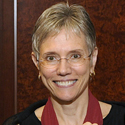 |
| |
Susan Lewallen |
| |
|
| |
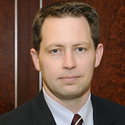 |
| |
Andrew Adams |
| |
|
Last month, Susan Lewallen (a visiting scholar in the Department of Ophthalmology) and Andrew Adams (an associate faculty member and former fellow in the Department of Surgery) were honored as inaugural co-recipients of the Woodruff Scholar Early Independence Award. They will split the $100,000 award, using the funds to support their research.
Lewallen's research focuses on preventing blindness, care delivery, global health, and health disparities, while Adams investigates development of new drugs to prevent graft rejection and promote immune tolerance in transplantation.
This new faculty award was created to facilitate the recruitment or retention and encourage the research of "rising stars." The program was envisioned by the "Max Axx" team in the class of 2010 of the Woodruff Leadership Academy, whose members developed the concept to help retain the "best and brightest" in medicine, nursing, public health, and Yerkes. (See related story.)
David Stephens, WHSC VP for research, refined the WLA team's proposal and submitted a successful request for support from the Woodruff Fund. The award, which will be given annually, also derives from the vision outlined in the WHSC's research strategic plan, says Stephens.
Members of the WLA team responsible for this idea include Dan Brat, Beth Buffalo, Pamela Hoppie, Maeve Howett, Jim McKay, and Jason Stein.
New position will connect physicians with philanthropy
| |
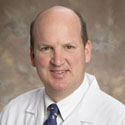 |
| |
Andrew Smith |
| |
|
Cardiologist Andrew Smith has been named to the new position of medical director of health sciences development and alumni relations. Smith, an Emory medical school alumnus, holds the Andrew L. Smith Chair in Heart Failure Therapy and is medical director of the Centers for Heart Failure Therapy at Emory University Hospital (EUH) and EUH Midtown.
In this added role, Smith will serve as a liaison between development staff and health sciences faculty in fundraising efforts. He will work directly with donors to better understand their giving objectives and will educate faculty and staff to assume partnership roles in the fundraising process. He also will chair a health sciences philanthropic advisory committee for faculty leaders and will serve as a faculty liaison for initiatives to optimize access to health care services.
"This new position is part of an ongoing effort to enlist and empower our faculty in recognizing potential donors and fostering philanthropic relationships," says Maggi McKay, VP for health sciences development. "Last spring we had a series of workshops for faculty who were interested in learning more about talking to patients and families about fundraising. This new appointment will help us keep the momentum going in partnering with faculty to help match interests of philanthropists with opportunities to fund research, education, and patient care."
Advocating for Emory's interests
One in a series of profiles of people in the Woodruff Health Sciences Center
| |
 |
| |
Linda Womack |
| |
|
From January to May, Linda Womack pretty much lives at the Georgia Capitol, dashing home to sleep a few hours, change clothes, and hurry back. The Georgia General Assembly is in session then, and part of her job as Emory's director of state government affairs is to keep up with hundreds of bills, making sure the governor, lieutenant governor, their staffs, and Georgia's 236 legislators (most of whom she knows personally) understand what Emory does and how a proposed law will impact its missions of teaching, research, and patient care.
It's a round-the-clock cycle of legislative sessions, committee meetings, and one-on-one visits.
Womack works hard to minimize the effects to Emory of the shrinking state budget. This year, with no new state dollars available, she was able to get language into the Georgia budget to bring more federal dollars to Emory University Hospital Midtown through state funding paid annually to the medical school's family practice residency program—close to $1 million a year.
Womack draws widely on Emory leaders to help make a case for or against a bill. Dean Jim Curran in public health, for example, was a big supporter of the bill that created a new stand-alone Georgia Department of Public Health (DPH), which is now no longer a division in the Department of Community Health (DCH). Departmental status allows DPH a more independent voice on policy issues impacting public health and public health preparedness, separate from other issues such as health care financing.
Some lobbying efforts are done jointly with other organizations such as the Medical Association of Georgia or Georgia Hospital Association (GHA). Emory worked with GHA, for example, to restructure a tax on hospital net patient revenues that costs Emory's hospitals millions of dollars every year.
Biostats
• Current: Director, State Government Affairs, Emory
• State Government Regional Manager, Warner Lambert Pharmaceutical Co • Founding Director, Government Affairs Dept, Oglethorpe Power
• Staff, Washington, DC, for congressman representing her hometown of Millen, Ga
• BA, history and politcal science, Georgia Southern Univ |
|
In May, the legislative session may be over, but Womack's work continues year-round. She reports to government affairs VP John Engelen, with whom she strategizes about issues and the politics of issues. One ongoing responsibility is educating legislators about Emory's contributions to Georgia, such as the number of health professionals trained and research dollars brought into the state. Womack arranged a meeting this month, for example, in which EVPHA Wright Caughman and others updated the governor's health policy adviser on a number of issues, including how Emory is helping address Georgia's physician shortage. Womack's information packages for this kind of meeting are legendary for their detail and usefulness.
The biggest ongoing issue for Womack is protecting Emory's status as a nonprofit that is exempt from state/local sales taxes. (Unlike for-profit organizations, nonprofits cannot distribute surplus funds to owners or shareholders but instead use them to pursue goals such as education, research, health care, and charity work.) Emory's nonprofit status is based in part on the charity care it provides ($63.5 million in 2009-2010). Losing this tax exemption would cost Emory's hospitals tens of millions of dollars yearly.
Other issues Womack deals with include funding for HOPE scholarships, tuition equalization grants (payments to private colleges and universities for each Georgia student educated, in recognition that this reduces the state's tax burden for public schools), and research. She also supports Emory Healthcare in resolving issues at the Georgia DCH, such as Medicaid reimbursement and claims payments.
Since Womack joined Emory in 2000, economic pressures, pending health care reform, and other issues have made her job increasingly challenging. On the other hand, she says, Emory's successes and contributions to the Georgia community make it a joy to represent.
|
|
 |
|
From the Executive VP
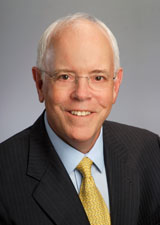 |
| Wright Caughman |
|
Hospital Rankings Reflect the Commitment, Excellence of Our Teams
A few weeks ago, U.S. News & World Report issued its 22nd annual guide to America's Best Hospitals, in which Emory's facilities and programs were again touted among the best in the nation. The list identifies hospitals that are exceptionally skilled in handling the most difficult cases, and this year Emory is positioned among the nation's best in 10 specialties, including five top-20 rankings (Cardiology and Heart Surgery, Nephrology/Kidney Disorders, Neurology and Neurosurgery, Ophthalmology, and Psychiatry). Just a few months ago, the same publication ranked the best hospitals in the metro Atlanta area, naming Emory University Hospital number one, Wesley Woods Geriatric Hospital number three, and Emory University Hospital Midtown number four.
These rankings are an important form of recognition for Emory because they aren't arbitrarily bestowed. There's an objective methodology behind them that takes into account many of the key measures by which we evaluate our own success, including patient safety, death rates, procedure volume, nurse-to-patient ratios, etc. A national survey in which physicians were asked to name the hospitals they consider best in their specialty for the most complex cases was also factored into the scores. These measures were evaluated for more than 5,000 medical centers nationwide, so receiving such high rankings in so many specialties is a truly remarkable achievement.
Of course, rankings are not the only measure of our success, but the hard data behind them make them tangible reflections of the extraordinary work our teams do every day. Being recognized among the very best helps build the Emory brand nationwide, bringing well-deserved attention to our truly outstanding patient care programs—and to the talented and dedicated people whose commitment to providing the finest care to our patients and their families makes all of our success possible.
Speaking of success, Emory Healthcare CEO John Fox recently announced completion of an important next step toward formation of a joint operating company with Saint Joseph's Hospital (see below). Thanks and congratulations to both the EHC and Saint Joseph's teams on this milestone toward a goal that will benefit not only the patient care we provide but also our missions of research and teaching.
(evphafeedback@emory.edu)
In brief
Update on joint operating company with Saint Joseph's
 |
|
| John Fox |
|
Emory Healthcare and Saint Joseph's Hospital have filed the required notice with the state attorney general regarding the new joint operating company, Emory/Saint Joseph's Inc. Next steps in the process include the following:
• After deeming the application complete, the attorney general will review all documentation provided by the two hospitals over the next 60 days.
• A public hearing will be held to allow community members to voice any concerns (location and date of hearing to be announced).
• Within 30 days after the hearing, the attorney general will issue his opinion.
• If the decision is favorable, the deal will close as soon as possible thereafter. Possible involvement of the Federal Trade Commission may affect timing of approvals and closing.
• EHC and Saint Joseph's teams will continue working through transitional and operational planning.
NIH selects Emory team for blueprint initiative
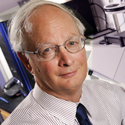 |
|
| Ray Dingledine |
|
The NIH has selected an Emory team led by Ray Dingledine (chair of pharmacology and dean of research in the medical school) to develop new drugs for stroke as part of the NIH Blueprint for Neuroscience Research. The team aims to develop drugs based on lipid compounds called prostaglandins that have been shown in animal studies to protect the brain against stroke damage. The NIH Blueprint pulls together resources from 15 of its institutes and centers and creates a network that will serve as a resource for investigators to develop new drugs and prepare them for clinical trials. In addition to research funding, project teams will have access to millions of dollars worth of services normally available only to pharmaceutical companies. Read more.
Emory, Children's receive $4 million from Zeist Foundation
 |
| New bridge to be named for George Brumley |
The Zeist Foundation, an organization that serves children, youth, and families, has given $4 million to Emory and Children's Healthcare of Atlanta to support construction of the health sciences research building. A two-story working bridge connecting the new building to the Emory-Children's Center will be named after the late George Brumley, who served as head of the Department of Pediatrics at Emory and as medical director at Children's at Egleston from 1981 to 1995. Brumley died in 2003, and members of his family are carrying on his legacy through the Zeist Foundation. Read more.
New funding for Parkinson's research
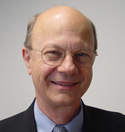 |
| Mahlon DeLong |
|
The co-founder of Aflac Inc., Paul Amos, and his wife, Jean, have donated $4 million to Parkinson's research at Emory. The funds will be used for research and clinical trials and for recruitment of researchers. Mahlon DeLong, William Timmie Professor of Neurology, has treated Paul Amos for many years. Read more.
New pediatric heart network core
 |
|
| William Mahle |
|
| |
|
 |
|
| William Border |
|
The NIH has selected Emory-Children's Pediatric Research Center as a new pediatric heart network core site for clinical research. Cardiologists William Mahle and William Border will serve as the core's principal investigators. The Emory-Children's core site is one of nine across the U.S. and Canada that will be co-recipients of $19.6 million from the NIH over five years. Read more.
Notable
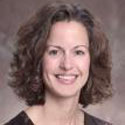 |
| Erica Brownfield |
|
Erica Brownfield was appointed assistant dean for medical education. She is vice chair for education and an associate professor in the Department of Medicine.
 |
| Deborah Bruner |
|
Deborah Bruner will join Emory in September as a professor in the nursing school and as associate director of cancer outcomes at the Winship Cancer Institute. An expert on cancer care and quality of life, she comes from the University of Pennsylvania.
Read more.
 |
| James Curran |
|
Rollins School of Public Health Dean James Curran was appointed to the Georgia Board of Public Health by Gov. Nathan Deal in July.
 |
|
| Kathy Griendling |
|
Kathy Griendling (medicine) was appointed assistant dean for faculty development in the medical school. She is also vice chair for faculty development in her department.
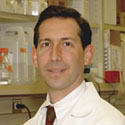 |
|
| Saul Karpen |
|
Saul Karpen has been appointed to lead pediatric gastro-enterology, hepatology, and nutrition in both the Emory-Children's Center and the Department of Pediatrics.
Karpen comes from Baylor College of Medicine and Texas Children's Hospital, where he led the Texas Children's Liver Center. Read more.
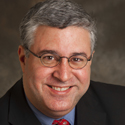 |
|
| Fadlo Khuri |
|
Fadlo Khuri (Winship, hem/onc) has been named editor-in-chief of Cancer, a journal of the American Cancer Society. Read more.
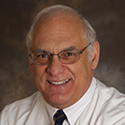 |
|
| Michael Kuhar |
|
Michael Kuhar (Yerkes) received the lifetime achievement Nathan B. Eddy Memorial Award from the College on Problems of Drug Dependence. Kuhar pioneered now widely used techniques that allow researchers to see where drugs are acting within the brain. Read more.
Events
Sept. 1: Half-day program with Gov. Nathan Deal, biotech pioneer Leroy Hood, and scientists from Emory, Morehouse, and Georgia Tech in honor of Personalized Medicine Awareness Day. 1:00-5:00 p.m., Morehouse School of Medicine.
Sept. 9: 4th annual Department of Medicine Research Day, Cox Hall Ballroom.
Oct. 15: Winship 5K Win the Fight Walk/Run to support cancer research and care. McDonough Field, Emory campus. Register online.
Oct. 15, 16: Juvenile Diabetes Research Foundation Walk to Cure Diabetes. Two local events, one at Centennial Olympic Park (Oct. 15) and one at State Farm Park in Johns Creek (Oct. 16). Contact Tara Davis or register online. |





